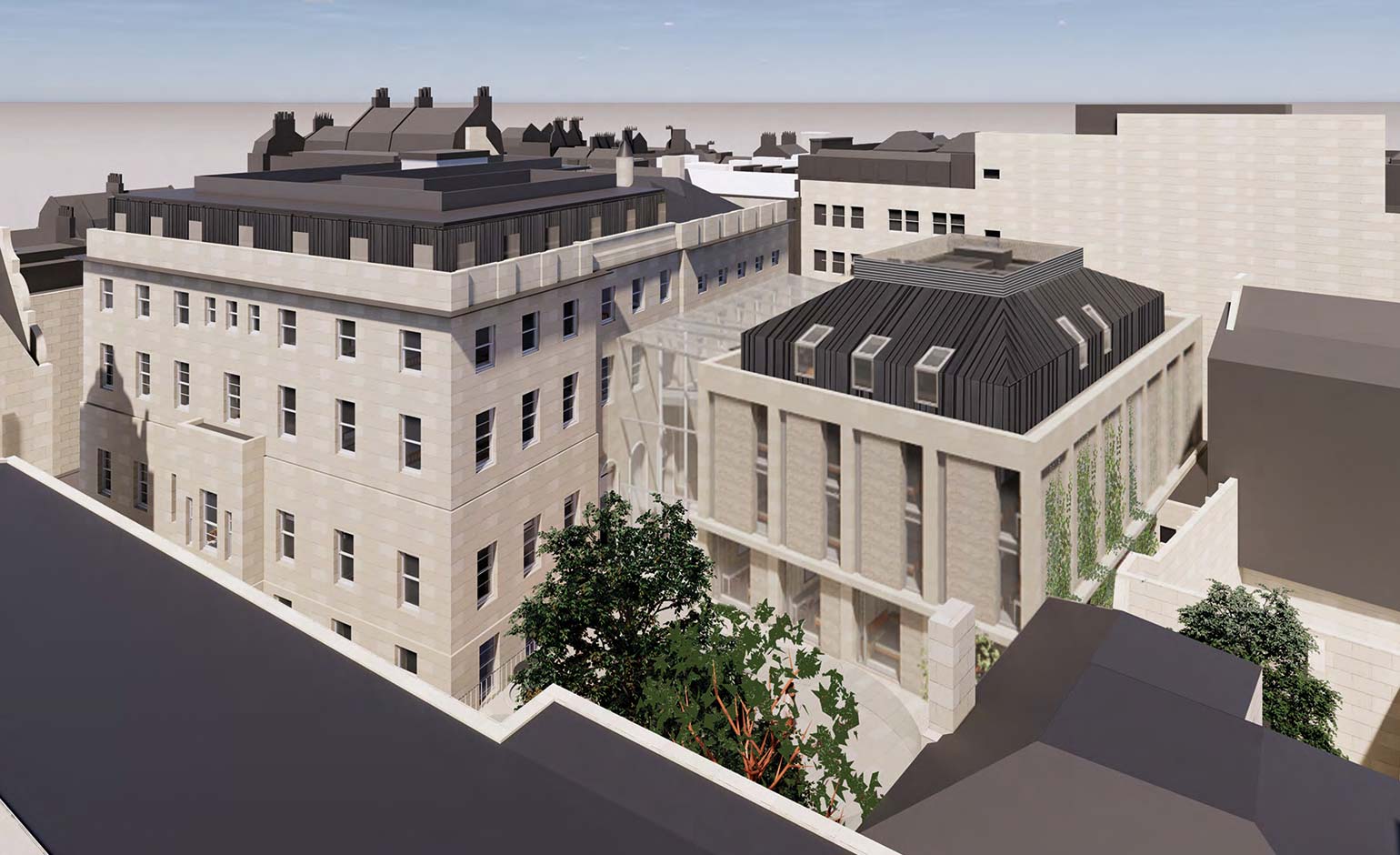Connection issues dogged a meeting and forced a decision on the £35 million conversion of a historic Bath hospital into a 167-bed hotel to be delayed.

The revised plans for the RNHRD site | Image © Fragrance Group
Helen Wilmot, whose flat overlooks the garden of the grade II*-listed Royal Mineral Water Hospital, was telling councillors the building’s extension would be “oppressive” and “like a prison wall” when the audio started looping.
Planning committee members were told they may have to restart the debate so accepted her pleas to visit the site.
Bath Labour chair Jane Samsom told Bath and North East Somerset Council’s planning committee meeting, held over Zoom on 26th August: “There’s no public benefit to these proposals. The benefits are private and commercial.
“It’s nonsense to suggest the only alternative for this building is disrepair.
“Listed buildings do fall into disrepair occasionally, usually painstakingly restored in better economic times. This is not a reason to allow predatory capitalists to fillet them at will in times of economic downturn.”
Ms Wilmot pleaded with the committee to defer their decision and see the impact on her and her neighbours for themselves.
She said: “The extension would tower over us, it would dominate our view. It would be incredibly oppressive – it would be like a high prison wall.
“The loss of the trees is heartbreaking. It’s a conservation area. Everybody who lives there finds them incredibly therapeutic.
“There have been 187 objections. We feel unheard. We’re just so angry and upset. It would completely enclose us.”
Singapore-based investment firm the Fragrance Group, which bought the former Royal National Hospital For Rheumatic Diseases in 2018 for £21.5million after it was put on the market by the NHS, wants to turn it into a “lifestyle” hotel, complete with spa and restaurant.
Opponents including film director Ken Loach have quoted studies indicating Bath has no need for additional hotel rooms.
Planning agent Sandra Tuck said: “The proposals require an investment of around £35million to secure the restoration, repair and conversion of the building going forward.
“The hotel use and future management regime will fund the considerable ongoing costs in perpetuity for these buildings.
“It will also facilitate continued public access to the building, allowing hotel guests, visitors and Bath residents to access the new health spa, restaurant, cafe and garden. Private residential use would not facilitate any such public access.”
Ms Tuck said Fragrance Group had conscientiously responded to feedback and minimised harm to the listed building as far as possible.
She acknowledged that the outlook for some residents would be changed but said they will “still enjoy a relatively open outlook for this city-centre location” and there would be no overlooking.
Following the connection issues, legal adviser Simon Elias said the connection difficulties raised questions about whether members should make a decision or restart.
Committee chair Matt McCabe proposed a site visit to get around the issues.
Planning officers had recommended approval, saying: “Whilst the evidence indicates that there is no need for additional hotel accommodation, it is not for the planning system in this context, to intervene in the operation of the market or protect individual businesses/hotel operators.
“Securing the optimum viable use for this building is essential to achieve a successful sustainable outcome for this site.
“The development will have an impact upon the neighbouring occupiers and will change how they experience the site. However, the development will not result in a situation where they no longer have appropriate living conditions in this city centre location.”
Stephen Sumner, Local Democracy Reporter



